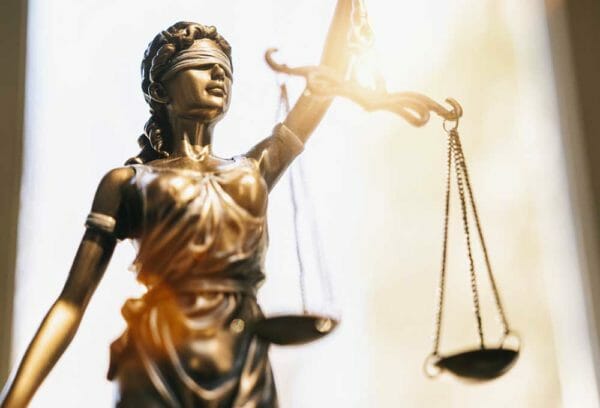Opinion

New York – -(AmmoLand.com)- It is a rather curious thing, when one stops to think about it, that the broad right of self-defense, and the narrower fundamental right contained in it and inextricably bound to it—the fundamental, natural, and unalienable right of armed self-defense—would have to come up for review by the U.S. Supreme at all. After all, the right of self-defense/the right of self-preservation, and the concomitant natural right of armed self-defense are axiomatic; self-evident true.
One would think that a Country such as ours, with a rich heritage of cherishing natural rights, would not have to suffer enactment of laws that place so many hurdles in the path of citizens who wish nothing more than to be able to exercise the rights the Bill of Rights guarantees them. The Second Amendment, though, is treated by those jurisdictions, controlled by Marxists and Neoliberal Globalists as an outlier, even an outcast—a thing inconsistent with international norms and, so, something to be mercilessly attacked and eventually abrogated. Will this change?
Many people, both proponents of the natural right of armed self-defense and its detractors, speculate that a decision in New York State Rifle and Pistol Association vs. Bruen, when handed down next summer, could be expansive and all-encompassing and resurrect the Second Amendment’s status as a cherished right—a right absolutely essential to the maintenance of the Nation as a free Constitutional Republic and for the preservation of the Nation in the form of a free Republic for centuries to come.
But, even with an expected Conservative wing majority, a positive decision will likely not be as broad-based and all-encompassing as proponents of the Second Amendment yearn for and expect and as the Amendment’s opponents anticipate and dread.
Assume, for purpose of argument, that the High Court does strike down New York City’s notoriously oppressive and repressive “may issue” requirements involving the issuance of concealed handgun carry licenses outright.
How will this impact similar statutes in other “may issue” jurisdictions? Past precedent appears to give us that answer.
The Bruen ruling won’t affect other “may-issue” jurisdictions. It won’t affect the prerogative of State and Local Governments in these other jurisdictions that have, in place, their own may-issue procedures. The Chief Justice and the liberal wing of the Court have seen to that in having reframed the issue, as I shall explain in this authors’ opinion below.
A ruling for Plaintiff Petitioner would probably, at best, only serve to strike down unconstitutional procedures established by the City’s gun Licensing Division. Such a ruling would not logically or legally entail the dissolution of “may issue” regulations. It would just impact the particular procedures the City presently employs when rendering its decision.
In order for a Bruen majority opinion ruling to be compelling, it would have to be all-encompassing.
This means the Court would have to rule that the very notion of “may issue” concealed handgun carry licenses, instead of “shall issue” concealed handgun carry licenses—in the absence of major failings in a person, including, for example, a felony conviction, a dishonorable discharge from the military, mental incompetence, or illegal alien residency in the Country—are logically inconsistent with the import of the right codified in the Second Amendment regardless of procedures utilized. See, 18 USCS § 922(g).
And the Court should render a ruling on this because geographical constraints on the exercise of armed self-defense are absurd.
For, if a law-abiding, rational, responsible person has the right to preserve his or her life and safety with a firearm, being no threat to another innocent person, how is one’s life and safety to be adduced more valuable in one locale—one’s home say—but not in another locale, i.e., outside one’s home.
The Court should respond to this but won’t do that, and the reason is plain: Built-in constraints due to the framing of the issue before the Court preclude a decisive ruling on the exercise of armed self-defense outside one’s home.
That is not to say all the Justices would be pleased by this, for the idea behind “may issue” impacts and infringes the very core of the right of the people to keep and bear arms. “May issue” is an affront to the Second Amendment and logically contradicts the very import and purport of the sacred right.
From their writings and musings on the Second Amendment, Justices Alito and Thomas would, if they could strike down “may issue” gun regulations across the board, both as utilized in the City of New York and around the Country. But they can’t. Chief Justice Roberts and the liberal wing of the Court have seen to this.
Chief Justice Roberts and the liberal wing of the Court were keenly aware of the ramifications of a major ruling on New York City’s “may issue” regimen if “may issue” were on the table. These Justices appear to abhor other profound rulings as in Heller and McDonald. The entire legality of “may issue” should have been on the table, but it isn’t.
Roberts and the liberal wing had thought very carefully through this, and they made sure that “may issue” gun licenses would not be targeted, even as Plaintiff Petitioner brought the very issue of “may issue” to the fore, as the question goes to the heart of whether, or to what extent, there should be limitations on where the right of armed self-defense is to be exercised.
There should be no geographical parameters defined apropos of one’s exercise of the right of armed self-defense but precedent indicates there will be.
About The Arbalest Quarrel:
Arbalest Group created `The Arbalest Quarrel’ website for a special purpose. That purpose is to educate the American public about recent Federal and State firearms control legislation. No other website, to our knowledge, provides as deep an analysis or as thorough an analysis. Arbalest Group offers this information free.
For more information, visit: www.arbalestquarrel.com.

